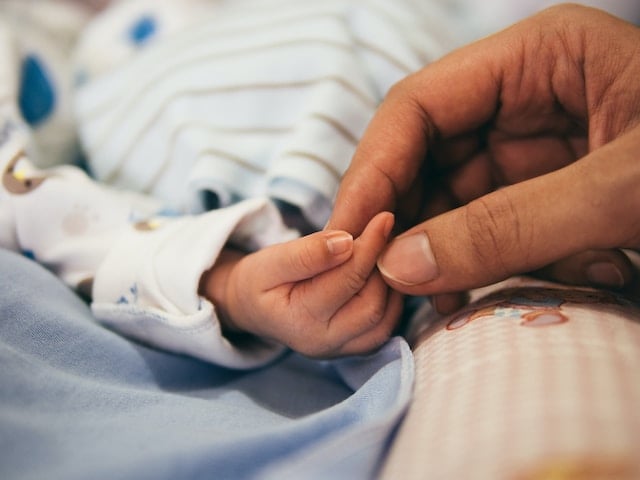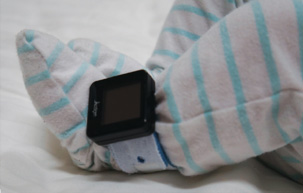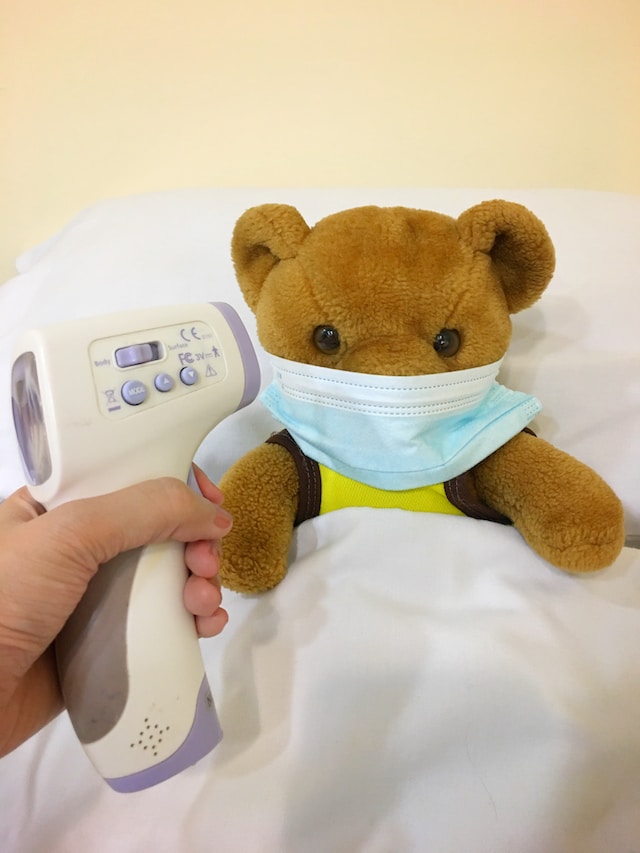MRI Sub-Study

At some hospitals, babies may have a Magnetic Resonance Imaging (MRI) scan of their brain before they are discharged home as part of their routine clinical management.
The MRI Sub-Study aims to learn more about how circadian rhythms influence the development and functioning of preterm babies’ brains.
If your baby is enrolled in the CIRCA DIEM Study and has a routine clinical MRI scan before they are discharged home, we will ask for your permission to access this scan to look more closely at their early brain development.
Sleep Sub-Study

It is important for us to understand if cycling light and noise has a lasting impact on babies after they are discharged home from hospital, into a normal day-night environment.
The Sleep Sub-Study aims to find out whether the early development of a circadian rhythm improves the duration and quality sleep in babies and their parents after they are discharged home from hospital. Better sleep for both a child and their parents may improve the child’s general development and may also improve the mental wellbeing of their parent(s).
As a part of this sub-study, we will ask parents/caregivers to complete some additional questionnaires and sleep diaries to assess their sleep patterns as their baby grows.
In Perth, Western Australia, we will also assess the strength of babies sleep patterns by measuring the level of melatonin (an important hormone for sleep) from saliva samples. We will also perform repeated 24 hour sleep assessments using actigraphy, which involves wearing a small watch-like device called an actigraph. The results from the actigraph will give us important information like total hours of sleep, longest amount of time spent asleep and number of awakenings.
Infection and Immunology Sub-Study

A strong immune system is important to help fight infections, especially for premature babies who are at a higher risk of becoming unwell while they are in hospital, and in their first few years after being discharged home.
Recent research suggests that our circadian rhythm plays a very important role in how our immune system works. The main aim of the Infection and Immunology Sub-Study is to find out whether the timing of the development of a circadian rhythm can influence the likelihood of premature babies developing infections while they are growing up.
If you are asked to take part in this sub-study, we will ask you to track when your baby is feeling unwell using an app on your phone. Based on how your child is feeling, we may ask you to complete some additional questions such as whether your baby needed to see a doctor, or go to the hospital.
For participants who live in Perth, Western Australia, researchers at Telethon Kids Institute will ask for your permission to collect some additional samples from you and your baby. These samples will help us to understand how timing of the development of the body clock plays a role in how often babies’ develop infections.
Social Communication Sub-study

Children that are born preterm are at an increased risk for delayed communication development.
The CIRCA DIEM Social Communication Sub-Study aims to understand if our study intervention (eye masks and ear plugs at night during hospitalisation) reduces the number of children who show signs of delayed development in not only how they think, but also how they behave and communicate.
As a part of the main CIRCA DIEM study, parents are asked to complete a checklist about their child’s communication and development. Depending on the results of this survey, parents may be asked if their child would like to participate in the Social Communication Sub-Study.
Children taking part in the Social Communication Sub-Study will be invited to complete an additional play-based assessment when they are around 2 years of age. This assessment looks more closely at a child’s communication and development and takes approximately one hour to complete.